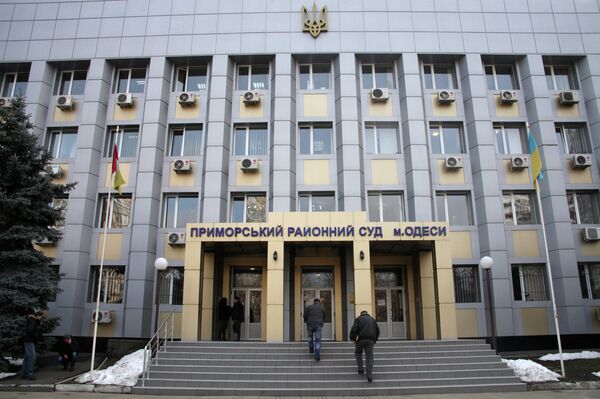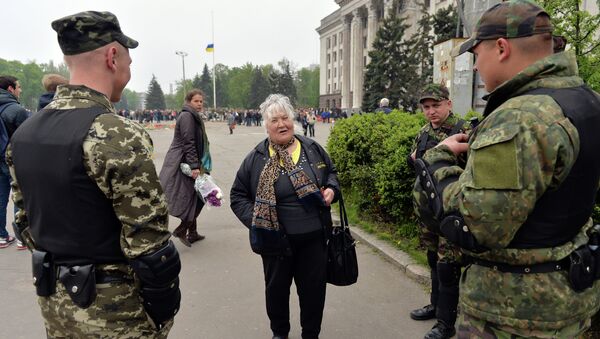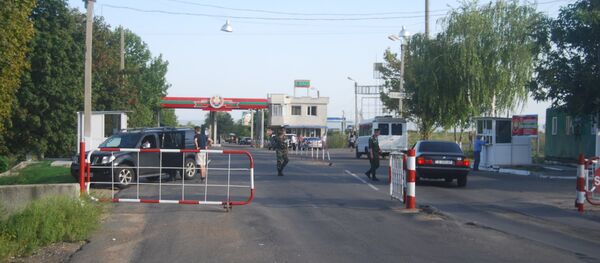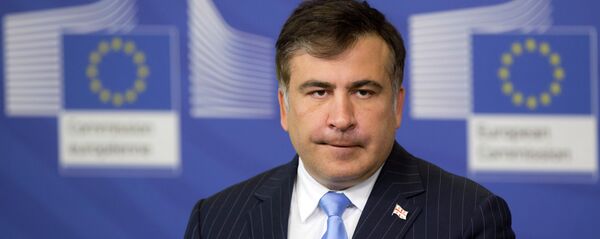"Those who are dissatisfied with the policy of the current Ukrainian regime, now rarely take to the streets of the city; their protest actions are few because there are fears of attacks by nationalists or security forces. Tourists try to stay away from Odessa, with its beaches remaining deserted," Heyden said.
He added that even the new Odessa Region Governor Mikheil Saakashvili feels unsafe and uneasy. In relation to this, Ukrainian President Petro Poroshenko ordered the formation of a special security unit to protect the former Georgian leader.

But the opposition and journalists and writers, who take a different view from the authorities, remain the most vulnerable part of the population in Odessa in terms of their security, Heyden said.
He mentioned writer Vsevolod Nepogodin,who was summoned to the Ukrainian Security Service after he warned in one of the newspapers that the policy pursued by Poroshenko and Saakashvili may provoke Ukraine's conflict with Transnistria, which is designated by Moldova as the autonomous territorial unit with a special legal status.
The authorities blamed Timer for supporting journalist Artyom Buzila and two his colleagues, who were arrested in late April on "separatism" charges.
Heyden also said that with special forces continuing to fight what is left of the free press, terrorist acts show no sign of diminishing in Odessa, where a bomb blast ripped through an empty freight train on June 4, damaging at least two meters of rail. No casualties were reported and an investigation into the explosion was launched.




